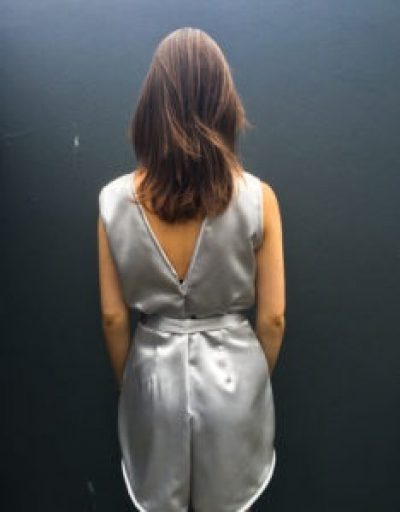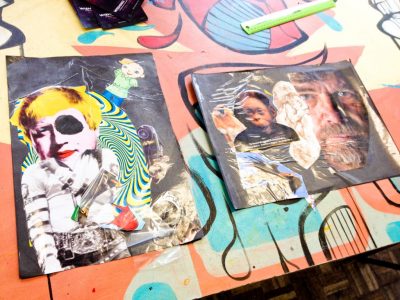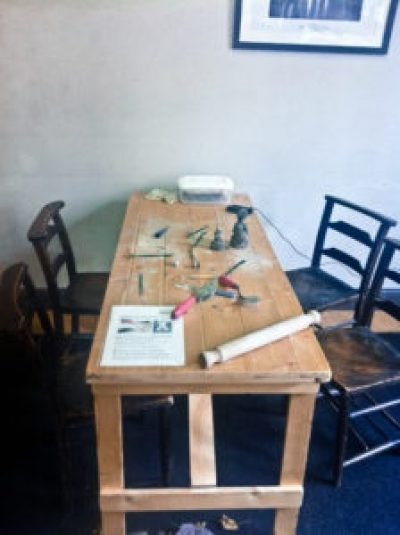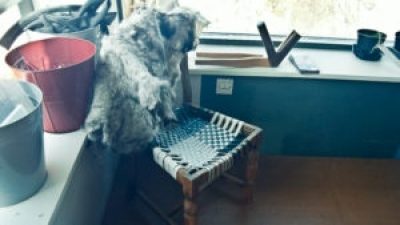The Twelve Days of Christmas at SMLC
Inspiring day at SML College!
October Open Day Invitation
Wednesday 19th October, 2-4pm
With the Autumn term now well under way, we're looking forward to our first Open Day of the season. Our Open Days are very informal, drop-in events where you can meet and chat to some of our current students and parents, as well as tutors and governors. There won't be any 'presentations' and our community members will answer your questions in a totally unscripted way so you can be sure you'll have some interesting & authentic conversations! If you've read our free ebook* and are interested in finding out more about our unique approach to learning, please do come along. We appreciate that for those of you with children in school, the timing might not be perfect but as the youth centre is used for various activities there are some time constraints. If you can't bring your child/ren with you on the 19th, you're welcome to come without them or join us for our next Open morning which will probably be on a Sunday. We'll keep you posted on the details.
Trial weeks
If after meeting you we all feel the College can benefit your child and vice-versa, the next step is for him/her to join us for a trial week. We usually run at least two per term for groups of 4-6 students at a time. During this week they get a first-hand taste of Self Managed Learning and see what it's like being part of the community. If at the end of the week, all parties feel it will be beneficial, the student can apply for a place at the College. Our next intake will be in January 2017 with a trial week some time in November.
We are based on the 1st floor of the Brighton Youth Centre (entrance at back).
64 Edward Street, Brighton, BN2 0JR
We look forward to meeting you!
Gaining an Arts award at SML College

At SML College we provide the facility for students to achieve an Arts Award, set up by the Arts Council to provide a route for young people to develop their creative and leadership skills and gain GCSE and AS level equivalent qualifications in the arts. To achieve their Arts Award, students take on various challenges in an art form of their choice and create a portfolio of work with the support of an Arts Award adviser, who acts as assessor, facilitator and mentor. We provide the facility for our students to gain an Arts Award at Bronze or Silver level. Bronze is equivalent to a lower level GCSE and Silver equates with an A* to C. (Gold level is at AS Level and gains UCAS points for university entrance though we currently do not offer that.) Past students at the College have undertaken work in a wide range of performing and visual arts from film-making and textiles to singing and games development. One of our current students, Mia, is busy working for her Silver Arts award in fashion with plans to study fashion at college next year. Thanks for sharing these pictures Mia.
Save
Save
Save
Charley's art workshop

Last Thursday Charley came into SMLC to give an Art workshop on dreams and nightmares. She started by giving us lots of magazines and scissors. Then she told us what ever picture that looked interesting to us to cut them out and put them on a black background. We could make what ever would be in our dreams or nightmares. I made a picture about evolution. It was about how we came from a fish to animals and a picture of every animal I could find. I was quite happy about how it all came together. I think Charley gave us very simple and yet effective guidelines and tips. What it set out to be, it was.
by Sharif, student at SML College.
Libertarian education: marginal experiment or instrument of social change?
by Luca Lapolla.
"Is libertarian education really possible within a neoliberal society? Why have libertarian education experiences always been marginal? What role can libertarian education have in overcoming the present situation? To think about possible answers to these questions, we held our fourth Applied History Network event at MayDay Rooms in London on 19 April 2016.
The idea to organise this event came after a reflection on my personal experiences as a teacher in mainstream schools, and took shape when I noticed that the debates on libertarian education at the last London Anarchist Bookfair (October 2015) had one of the highest attendances. More and more students, parents, and teachers are currently considering alternatives to traditional schools and universities, as these institutions are under a neoliberal siege – from the increase in the university fees to the introduction of academies.
Unlike previous debates on this matter, our objective was not to organise a seminar on the history of libertarian education, nor training course for experts. Rather, we aimed at reflecting on the historical role of libertarian education, and its political transformative power. Thus, in order to tackle the topic from different perspectives, we invited four speakers: Judith Suissa, Ian Cunningham, Jenny Aster, and Alex Brown. Judith is reader in philosophy of education at the Institute of Education – UCL, Ian is chair of governors at the Self Managed Learning College (SMLC) of Brighton, Jenny is a former pupil at the White Lion Street Free School in Islington, and Alex is co-organiser of Antiuniversity Now.
Judith Suissa opened the event with a short introduction on the history of libertarian education, which is inevitably connected to nineteenth-century anarchism. From anarchism, it inherited key elements like aversion to hierarchies and the importance of self-management. Other fundamental principles that characterise libertarian education are no compulsory attendance, no systems of rewards or punishments, no marks or grades. Then, Judith focused on the difference between present and past libertarian schools. While the pedagogy in the early experiments was an integral part in a prefigurative political project towards the construction of new social relations, the attention later shifted on important but less threatening aspects. Aspects that mainstream schools too adopted after the libertarian wave of the Sixties, such as abandoning corporal punishments and involving the pupil in the learning process. Although it is undoubtedly true that nowadays schools are less authoritarian, there is still – according to Judith – the need to challenge the dominant discourse on the ‘efficacy’ of schools. Rather than worrying about the grades of pupils, they should work towards establishing new social values.
The second speaker, Ian Cunningham, started by talking about his own experiences within the world of education, since he was an active member of the student union in the Seventies. When he later founded the Self Managed College, he aimed at turning his interest in the rights of students into a daily practice. In addition, he worked towards incorporating elements of the anarchist tradition, such as mutual aid. Ian said he is proud to tell his students that it was a visit to the Brighton aquarium that inspired Kropotkin to develop the theory of mutual aid. There, the Russian anarchist observed a group of crabs working together to help a crab immobilised under an iron bar. Faithful to the principle of mutual aid, Ian’s college adopts practices such as the student-managed tutoring, which teaches students to prefer cooperation over competitiveness. Because, Ian maintains, education should not aim at ‘better results’ but at happiness and an alternative to neoliberal competitiveness.
Jenny Aster focused her talk on the Islington school she attended in the Seventies. There, just like today in Brighton’s SMLC, it was the students who decided if and what to study, and there were no distinctions of gender or role, but a great attention to cooperation and self-realisation. Jenny, currently coordinator of the City university’s student counselling service, affirmed that it was thanks to the White Lion school if she became a confident person, emotionally ready to face the challenges of life.
Finally, Alex Brown spoke of Antiuniversity Now, and how this is aiming to relaunch the experience of the 1968 Antiuniversity, which experimented with alternative forms of further education. A nine-month experience of diverse courses in a derelict building, from experimental music to sociology of world revolution, from anti-psychiatry to dragons and UFOs. Even though for a short period of time, the antiuniversity became a commune of students and teachers, in which roles were fluid and the border between lessons and parties unclear. According to Alex, today there is still a need of an antiuniversity that opposes student debt, commercialisation of higher education, and the following importance given to professional qualifications. Thus, last year, the organisers of the Hackney Museum and of the Open School East decided to relaunch that experience by creating Antiuniversity Now. Like almost 50 years ago, their objective is to become a platform for ideas that have no space in the formalism of the traditional university system. However, unlike the antiuniversity of 1968, all courses are free. In November, their first festival counted more than 60 events across Great Britain with over 1100 people.
To conclude, we opened the floor to questions and contributions, which triggered a lively debate. For instance, a person asked if individualism and collectivism were in opposition within libertarian education, and Judith answered that this is true only if one thinks that people can exist without the social. Another question raised the issue of the real challenge that such experiences pose to the status quo, as the state tolerates them. Ian replied that such experiments have the fundamental role of embodying the alternative, and of preparing people to the change. Finally, the last reflections focused on the necessity to extend libertarian education to adults and beyond schools, possibly following on and improving the Occupy model.
So, are we to resign ourselves to libertarian education as a set of isolated experiments for few, or shall we try to create/support an easily accessible network of (anti)schools and (anti)universities? A libertarian education that enable the achievement (and preservation!) of a libertarian society by working on a cultural level, connected with the traditional radical commitment within labour and social sectors. Otherwise, when neoliberalism finally collapses – in one or one hundred years, due to inner or outer pushes – humanity will reproduce the only system they know: the current one."
Governors opportunity at SML College
Due to growing popularity of the College both nationally and internationally, we are will be expanding our governing body which is made up of a diverse group of academics, professionals and members of the College community. This is an opportunity to be part of a unique and expanding educational venture. If you'd like to proactively support our work and play a part in our progress please contact Ian Cunningham for more info. ian@smlcollege.org.uk
Visit to eco-architects ARCH angels
One of our students, Jack, is interested in considering architecture as a career so along with tutor Gillian, a visit to local eco-architects ARCH angels, was arranged to find out more about their work. They chose ARCH Angels because they have an emphasis on Green Architecture and are working on some interesting projects. They are also extremely local being just around the corner from the College and we are keen to make connections with the local community.
Here's what Jack had to say about the visit.
"Archangels are a Brighton-based architecture firm. Their main ethical focus is being environmentally aware. All their designs are passed through a team of people to make sure that they are environmentally friendly. In June six students from SML College went to their firm just off Edward Street. The firm was small - a main room and a meeting room. We were whisked into the meeting room, where we were talked to by a one of the architects, Alex. Alex was really interesting and confident, I thought he handled the talk really well - it was fun but factual. He asked us all general questions to do with architecture - What is architecture? If you could design a building anywhere, where would it be and what would it be? Everyone’s creative juices were flowing. At the end he answered our questions professionally. It was a really interesting and informative hour well spent."
As our students don't follow a curriculum they are free to mange their own timetables and pursue any interests they wish to. We actively encourage them meeting professionals in the real world of work, as well as gaining first hand experience with work placements. If you're a local business or professional who would like to connect with us and our students we'd love to hear from you.
Virgin Territory creative workshop

Some of our students at SML College recently took part in a social engagement creative workshop offered by the Internationally acclaimed performance company Vincent Dance Theatre at the Dome in Brighton. The workshop explored how our over-sexualised, digitised culture is affecting young people and their identities, expectations, choices and relationships through a series of creative tasks, ranging from sculpting clay to making t-shirt slogans to burying deep thoughts. They investigated everyday sexism and the challenges that young people face today, as they forge their own identities in an image-complex world. The stories, voices and materials generated through these workshops will anonymously feed the making of VIRGIN TERRITORY, which premiers at The Place, in London, on Wed 2 November 2016. http://www.vincentdt.com/project/virgin-territory-social-engagement/
Isabella, one of our students, said afterwards she "found that the trip was inspiring as a young feminist. I felt everyone was accepting of different opinions from feminist to anti-feminist. I would suggest this to anyone who has a conflicting opinions about feminism to see what it is actually like. I am glad that we went there." Another of our students, Annie thought "the trip was very eye-opening and exposed me to some new opinions. The atmosphere was very welcoming and we all got involved, contributing ideas and experiences. It was definitely an enriching activity which brought us together to really think about what it means to be a feminist." Monty was our only male student who took part and he also found it really interesting. As he said they "discussed a range of views, all of which were treated with equal weight. It was very accessible, particularly as they made an effort to explore all genders and thus resulted in a balanced conclusion. It was really enjoyable, I'd recommend it."
Visit to Brighton Waste House

Last week students from SML College visited the Waste House in Brighton.
The Brighton Waste House investigates strategies for constructing a contemporary, low energy, permanent building using over 85% ‘waste’ material drawn from household and construction sites. Now fully completed, the building is Europe's first permanent public building made almost entirely from material thrown away or not wanted. It is also an EPC ‘A’ rated low energy building.
They were amazed to see how much you can do with waste such as toothbrushes, skateboards, cassettes tapes, video tapes and boxes, vinyl records, bicycle inner tubes and tyres, denim jeans legs and DVD's cases. Here's what Annie, one of our students, had to say about the visit: "The waste house trip was an inspirational experience. It opened our eyes to alternative uses for waste products and highlights what a massive problem waste is. Cat was very passionate and proved how much one person can do especially when going against social norms. She motivated us to consider our actions and raised some fascinating points of discussion. The house was very homely and there was a general consensus that we would all live in one. This proves what a brilliant idea they are as the houses are super eco friendly and would help solve the housing crisis.
You'll find more photos of the trip on our facebook page.










